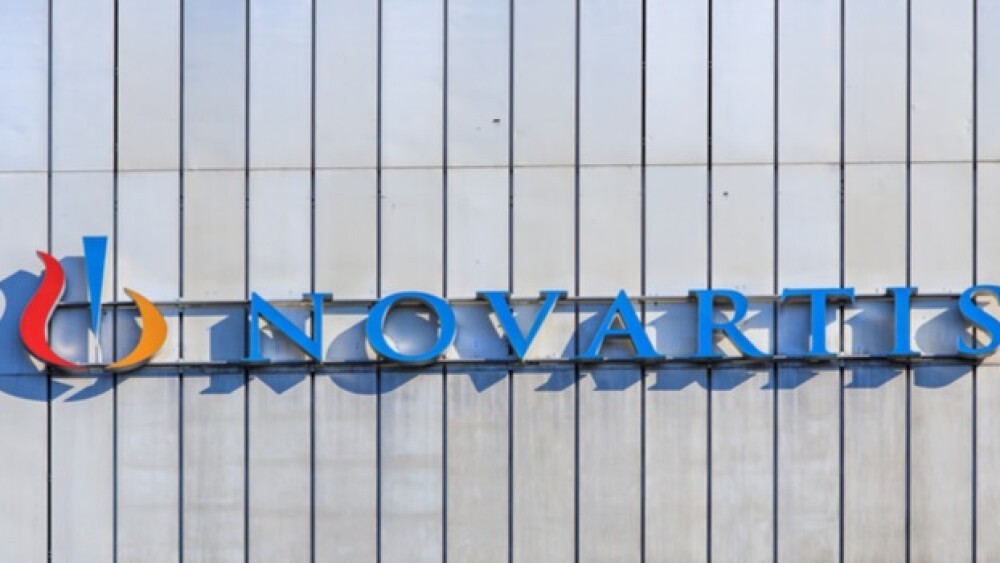Adamis Pharmaceuticals is selling U.S. commercial rights to Symjepi, a competitor to Mylan’s EpiPen, to Novartis.
Denis Linine / Shutterstock
Adamis Pharmaceuticals is selling U.S. commercial rights to Symjepi, a competitor to Mylan’s EpiPen, to Novartis.
Although financial details were not released, Novartis’ Sandoz division will pay Adamis an upfront fee and various performance-based milestone payments. Net profits in the U.S. will be shared equally by Adamis and Sandoz.
Adamis is holding rights to commercialize Symjepi outside the U.S., although under the deal, Sandoz has the first right of negotiation for those territories. The company indicates it may continuing developing Symject for other product candidates, including a naloxone product candidate being developed to treat opioid overdoses.
In mid-2017, the U.S. Food and Drug Administration (FDA) approved the Symjepi 0.3-milligram injector. Adamis said it planned to market it as a low-cost alternative to existing products, which likely meant EpiPen. The deal with Sandoz also covers the Symjepi 0.15-milligram injector when, or if, it is approved by the FDA.
“We believe the financial terms of this agreement have the potential to bring meaningful recurring revenue to Adamis and we look forward to growing, and possibly expanding, this partnership with Sandoz based on the future success of Symjepi in the market,” said Dennis Carlo, Adamis’s chief executive officer, in a statement.
Seeking Alpha notes that this deal occurs as Mylan is facing EpiPen shortages as the result of manufacturing problems. Mylan subcontracts its EpiPen production to Meridian Medical, a division of Pfizer.
In 2016, Mylan ran headlong into controversy over its pricing of the EpiPen. At that time, it had a price tag of approximately $600 for two injectors. The previous year, it brought in $1.2 billion, about 40 percent of the company’s total revenue. Mylan acquired the EpiPen in 2007. At that time the cost was $57.
There were a number of drug-pricing scandals at the time, exacerbated by the U.S. presidential election, where drug pricing became a talking point for all candidates. Valeant Pharmaceuticals routinely acquired drugs from other companies and increased the prices by more than 500 percent. Turing Pharmaceuticals, at that time owned and run by so-called “Pharma Bro” Martin Shkreli, acquired a 65-year-old toxoplasmosis drug, Daraprim, and increased the price overnight from $13.50 per tablet to $750 per tablet. Shkreli is currently serving a seven-year prison sentence for defrauding hedge-fund investors and manipulating his former drug company, Retrophin’s, stock.
In August 2017, Mylan closed a $465 million settlement with the U.S. Justice Department over claims the company overcharged the government for the EpiPen. Part of the claims were that Mylan dodged higher rebates to state Medicaid programs by misclassifying the product as a generic, despite it being marketed and priced as a brand-name product.
In a statement at the time, Acting U.S. Attorney William Weinreb said, “Taxpayers rightly expect companies like Mylan that receive payments from taxpayer-funded programs to scrupulously follow the rules.”
Under the terms of the court action agreement, Mylan, which did not admit wrongdoing, reclassified EpiPen and paid the rebate applicable to the new classification as of April 1, 2017.
It followed a False Claims Act whistleblower lawsuit brought by Sanofi in 2016, two years after it first brought the claims to the attention of regulatory authorities. Sanofi had marketed a rival product called Auvi-Q. As part of the settlement, Sanofi received almost $38.8 million.
Mylan since offered its own generic version of the EpiPen with a price tag of about $300.





